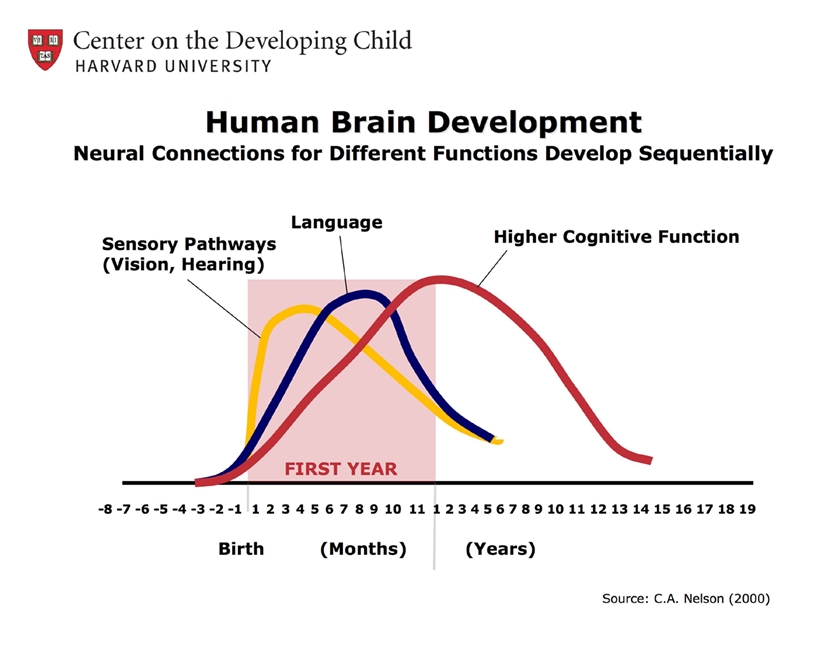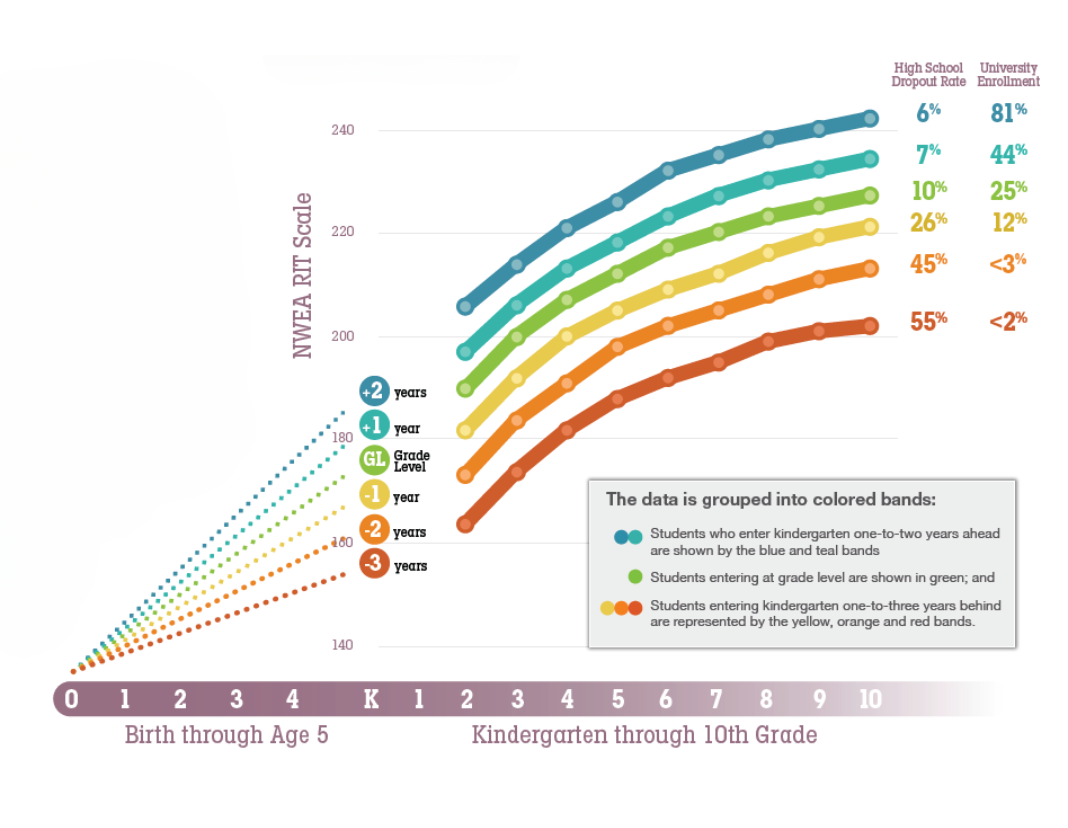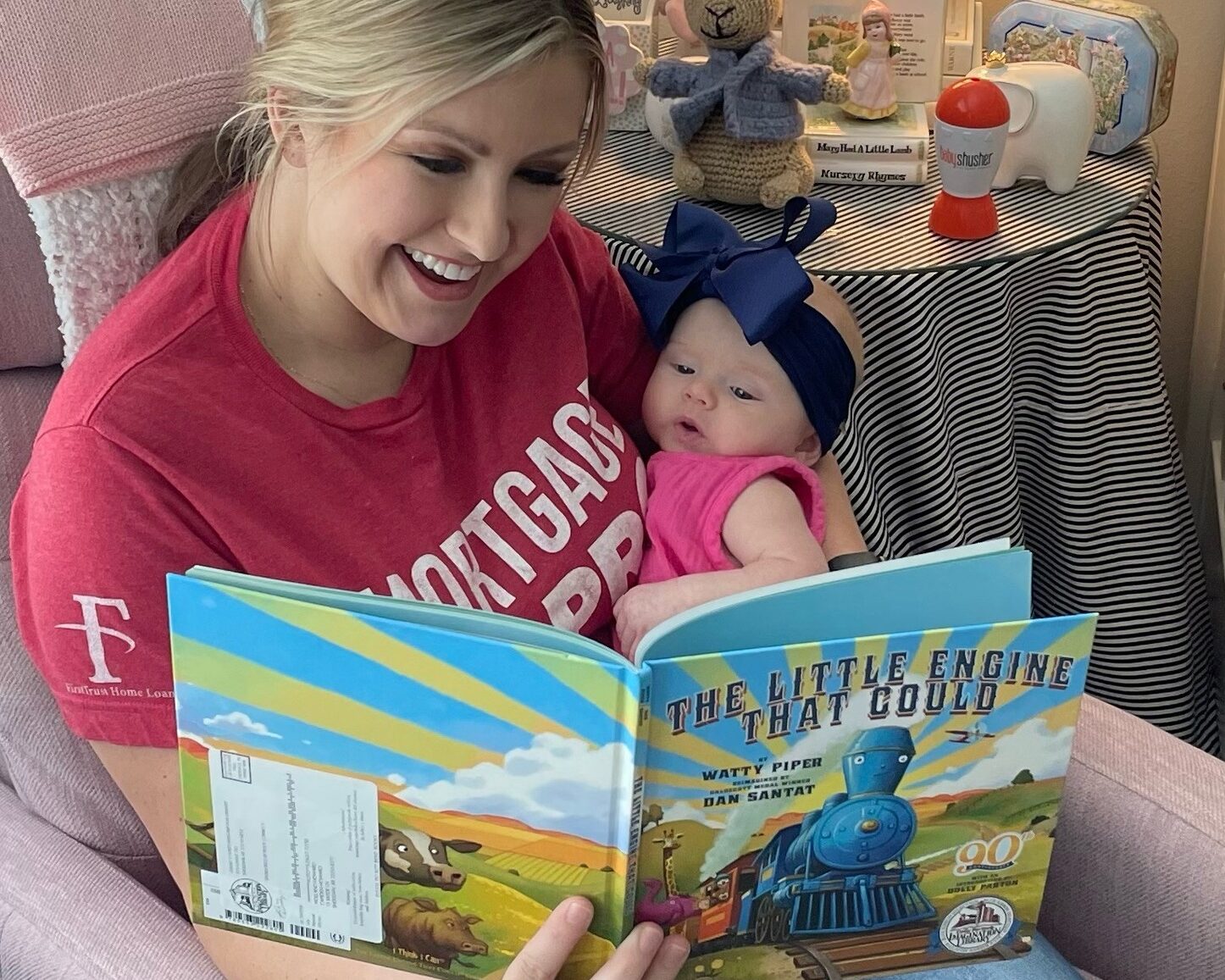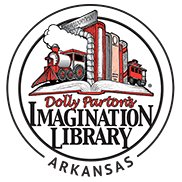Arkansas Imagination library
EARLY LITERACY MATTERSWhy Early Childhood Literacy Matters

Literacy begins at birth. The human brain develops rapidly in the first few years of life, when a child’s brain builds 1 Million connections per second! By age three a child’s brain will be 85% of its adult size. By the time a child enters kindergarten, their brain is nearly fully formed. (1) This “wiring” shapes infants and toddlers’ ability to learn to read and think critically. Because of that fact, as early as age three, a child’s vocabulary can predict third-grade reading achievement. Poverty diminishes brain growth in these earliest years. For example, many low-income infants and toddlers have limited exposure to early literacy and social-emotional skill development resources. 61% of children from lower-income families have no children’s books in their homes. In lower- income neighborhoods, the ratio of books to children is one book for every 300 children, far below the ratio of 13 books per child in more affluent communities. (4) What is the best way to ensure a child is armed with the knowledge they need to succeed? Reading aloud to that child and giving them access to books.
That’s where the Arkansas Imagination Library comes in. Through our partnership with Dolly Parton’s Imagination Library, we are working to send every child in Arkansas from birth to age five a new book each month. Research has shown that a child with 25 books in their home complete an average of two additional years of schooling compared to their peers without books in their home. (2) Our goal is that every child starts kindergarten “school ready.”
Research and Outcomes
85%
of a person’s intellect and social skills are developed by age 5.
95%
of public investment in education occurs after age 5, when the most critical learning years have passed. (3)
Children in middle- and high-income homes have an average of
13 books per child.
Children living in poverty have an average of
1 book per 300 children.
Because of this, low-income preschoolers have fewer learning opportunities than children from high-income backgrounds –
a major reason why they lag behind
in reading achievement throughout their school years. (4)(5)
The First Five Years
A child’s learning from birth to age 5 is critical; it determines their kindergarten starting point. Students who enter kindergarten behind have a monumental undertaking to catch up with their classmates.
The chart below represents the reading scores of 2.3 million students nationwide, based on real data from the Northwest Evaluation Association (NWEA). As students progress through school, they typically only make one year of academic growth for each year in school. For those behind, it’s extremely hard to catch up because they need to achieve their normal year of growth plus another year of growth or more.
So for students who enter kindergarten one-to-three years behind (the yellow, orange and red bands) it is very difficult to make sufficient progress to move up even one level without a massive amount of intervention.
All children can and will improve, but for those who enter kindergarten behind, around 75% will never catch up to their classmates. This means each child’s kindergarten starting point matters. (6)(7)

Impact
Dolly Parton’s Imagination Library ignites a passion for reading in young children through the building of key emotional relationships and by enhancing cognitive skills, leading to significant educational advancements.
Arkansas Imagination Library has conducted research and surveys to measure the impact and success of the Imagination Library program in our state.

Improving School Readiness in Arkansas 2023
In 2023, ARIL and the Arkansas Research Center analyzed Qualls Kindergarten Readiness Assessment scores that all preschool children took from 2013-2017. The analysis revealed that enrolled children were more school-ready and performed 5-10% better than unenrolled peers, particularly among low socioeconomic groups. This indicates that the Imagination Library program helps close both opportunity and achievement gaps. Learn More…
Arkansas Imagination Library Impact Report 2021
Young children whose parents read to them, tell stories, and sing songs become better readers and perform better in school. But almost 2/3rds of Arkansas children start kindergarten unprepared, lagging their peers in critical language, math, and social-emotional skills.
According to the Arkansas Community Foundation’s Aspire Arkansas Report (2023), only 32% of Arkansas third graders are proficient in reading. Third grade is considered an important milestone in a student’s career in terms of reading proficiency and is correlated to whether a student will graduate from high school. The Aspire Arkansas report indicates that, in school districts in distress, third grade reading proficiency levels are below the state average.
ARIL completed the first impact study in 2021. ARIL partnered with the Arkansas Department of Education, the Dollywood Foundation, the Arkansas Research Center, and the University of Central Arkansas to analyze student achievement among students that participated in the Imagination Library – going back to 2010 – and those students that did not participate in the program. This research demonstrated that enrollment in DPIL decreases retention, and increases kindergarten readiness and third grade literacy test scores by 18.26%. Learn More…
Nationwide Imagination Library Impact Studies
Research has shown that children participating in Dolly Parton’s Imagination Library are significantly more likely to be ready for kindergarten compared to students who are not participating in the program.
Dolly Parton’s Imagination Library is an evidenced-based, best-practice program (Library of Congress, 2021 & 2014) that helps to prepare children for kindergarten and later academic success. Impressive program results report that children enrolled in the program score significantly higher in reading comprehension and vocabulary measures than their peers – not only in kindergarten but also in second and third grades (Samiei, S., 2015).
These findings are consistent with other studies on the impact of the Imagination Library conducted around the nation over the past 25 years. Learn More…
A Family Literacy Program
The Imagination Library program’s unique approach provides a two-generation impact, inspiring both parents and children to embrace education and literacy. By delivering free, high-quality, age-appropriate books directly to families’ homes, the program nurtures a shared enthusiasm for reading. These monthly book deliveries not only spark joy in children as they receive mail but also motivate parents to engage in reading with their excited youngsters. Learn More…
Resources
Chart: Human Brain Development, C. A. Nelson (2000). Credit: Center on the Developing Child.
1. Eliot, L. (1999). What’s going on in there?: How the brain and mind develop in the first five years of life. New York, NY: Bantam Books
2. Evans, G. W., & Kantrowitz, E. (2002). Socioeconomic status and health: The potential role of environmental risk exposure. Annual Review of Public Health, 23, 303–331. doi: 10.1146/annurev.publhealth.23.112001.112349
3. Schweinhart, L.J., Montie, J., Xiang, Z., Barnett, W.S., Belfield, C.R., & Nores, M. (2005). Lifetime Effects: The High/Scope Perry Preschool Study Through age 40. Ypsilanti, MI: High/Scope Educational Research Foundation.
4. Neuman, S.B. & Dickinson, D.K. (Ed.) (2006). Handbook of Early Literacy Research, Volume 2. New York, NY: The Guilford Press.
5. Berk, L. E. (Ed.). (2009). Child Development (8th ed.) Boston, MA: Pearson Education, Inc.
6. Ready! for Kindergarten: The Children’s Reading Foundation (2022)
